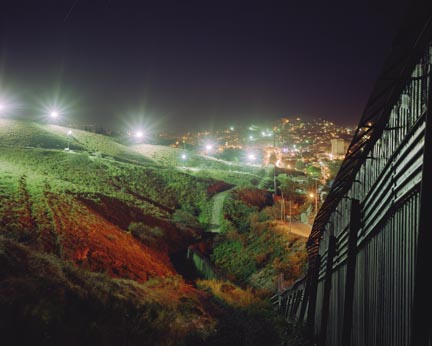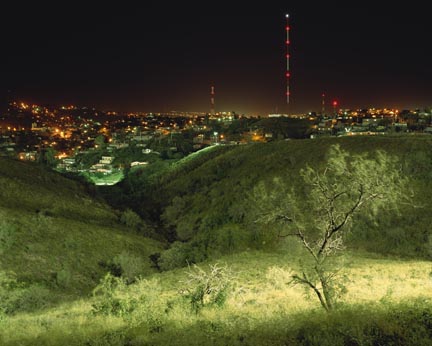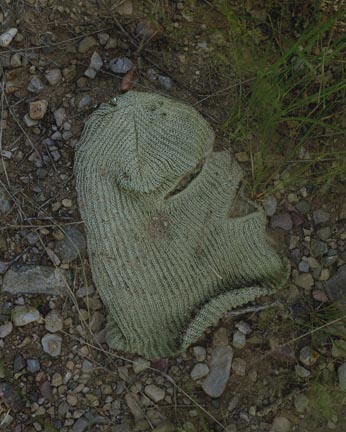About the Photographer
Norfolk, Simon
British, b. 1963
These photographs form chapters in a larger project attempting to understand how war, and the need to fight war, has formed our world: how so many of the spaces we occupy; the technologies we use; and the ways we understand ourselves, are created by military conflict.
— Simon Norfolk
Simon Norfolk started his career as a journalist but shifted course in 1994, prompted by the sense that photojournalism was effective in conveying simple stories but limited when it came to dealing with the ramifications of war. Norfolk refers to himself now as a landscape photographer and uses a large format field camera in place of a more portable 35mm, but his work remains openly political and aspires to an investigative clarity. The landscapes he portrays are often forged by conflict—he has traveled to active war zones in Iraq and Afghanistan and sites of genocide in Rwanda and Bosnia—but his concerns extend beyond literal battlefields. Norfolk also examines "the new realms of warfare," such as the out-of-the-way surveillance outposts that track global communications on an enormous scale and the banks of supercomputers that model nuclear explosions down to the atomic level. Subjects that seem unrelated at first gradually become part of a larger story, indications of how our society is significantly shaped by war.
Initially Simon Norfolk's photographs of the walled border in the desert landscape of northern Mexico and southern Arizona might seem unrelated to his explorations into the domain of armed conflict. Many of these images, however, reveal parallels to the violently contested areas Norfolk has photographed in locations like Israel and Palestine. The efforts of control and deterrence in these images are just as conspicuous and aggressive. High walls have been constructed, blazing lights illuminate the night sky, and the area bristles with sensors and detection devices. By some estimates 5,000 illegal aliens attempt entry into the United States through Arizona each night during the peak winter season, and half a million arrests are made in Arizona each year. The debate over immigration policy is haunted by the rhetoric of invasion, but in the end the continuing amplification of border security is related to American wars abroad in a more direct manner. As Norfolk has observed, politicians have used the initiatives at the U.S.-Mexico border as a way to look tough on the issue of "homeland security" as support for the Iraq war waned.




